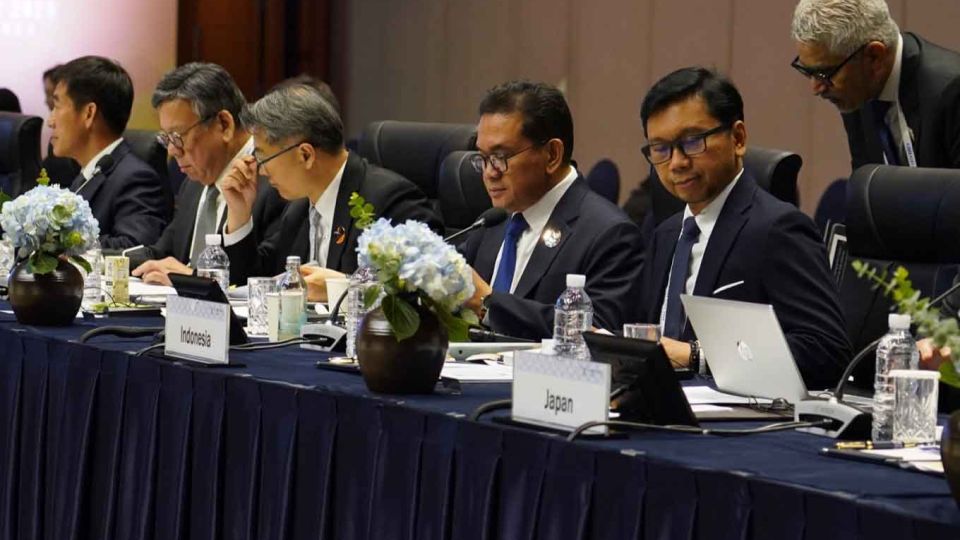October 1, 2025
JAKARTA – The recently signed Indonesia-European Union Comprehensive Economic Partnership Agreement (IEU-CEPA) will prompt both sides to loosen their policies on non-tariff barriers, Trade Minister Budi Santoso has said.
Not only would the agreement abolish tariffs on many traded goods, but “many non-tariff barriers will disappear as well”, Budi told reporters on Monday, adding that “many of the barriers will soften”.
Indonesia and the EU had been negotiating the CEPA since 2016, and a deal was finally concluded and signed on Sept. 23. Budi said he hoped the agreement would eventually double the trade between Indonesia and the bloc of European countries.
The ministry’s international trade negotiations director general, Djatmiko Bris Witjaksono, who was Indonesia’s lead negotiator for the trade pact, said on Monday that the CEPA itself did not contain or address specific nontariff barriers imposed by either side.
However, the agreement did have a provision recording commitments from both sides to address any unilateral policy posing a concern for bilateral trade.
“We’re legally bound to find a solution”, said Djatmiko before the audience in a public forum.
From Indonesia’s side, a policy that could be renegotiated with the EU was halal certification, which has been a sticking point for European exporters.
The EU Deforestation Regulation (EUDR), which will tighten rules on trading commodities associated with deforestation, was among the EU policies that Djatmiko mentioned could be addressed by virtue of the provision.
The European Commission has pushed back the date for when it plans to enforce the EUDR vis-à-vis big companies by a year to the end of this year and a year and half for smallholder farmers.
On Sept. 23, Brussels proposed another one-year delay, AFP reported, mere hours after the IEU-CEPA was signed.
The EUDR would hit Indonesian exports of palm oil and its derivatives to the EU market hard, and Brussels also imposes high tariffs on Indonesia’s palm-oil based biodiesel since 2019.
However, the EU seems to have softened its stance on the commodity, as European Commission Trade and Economic Security Commissioner Maros Sefcovic, who represented the bloc at the CEPA signing ceremony, said the pact “will ignite growth” in Indonesia’s palm oil industry.
Djatmiko said the EU and Indonesia had agreed to develop Indonesia’s palm oil industry in the CEPA.
Another EU regulation Djatmiko pointed out could be bilaterally resolved was the Carbon Border Adjustment Mechanism (CBAM), which is scheduled to kick in at the turn of the year and would affect Indonesian steel exports to the EU.
The regulation puts a price on the carbon content of emissions-intensive imports like steel, aluminum and cement with the idea of incentivizing greener production practices worldwide.
Under CEPA, tariffs will be eliminated in phases, some immediately as soon as the deal comes into force, others within three years and others yet would take five or 10 years.
Details on the tariff schedule remain undisclosed, but Djatmiko revealed that both palm oil and steel would receive immediate tariff elimination once the agreement came into force.
The signed documents still have to be ratified by the legislatures of both sides, a process that is expected to take at least a year. Jakarta and Brussels seek to enforce the CEPA on Jan. 1, 2027.


